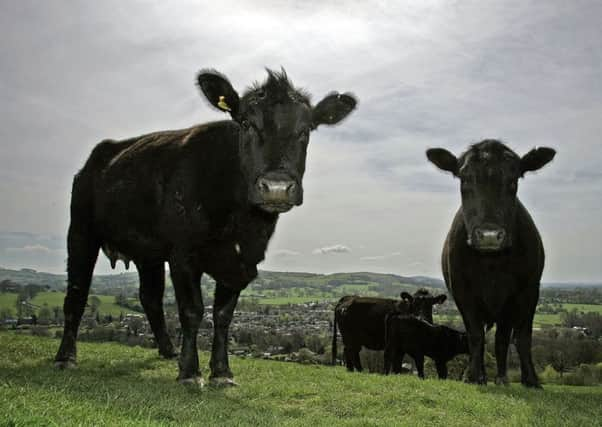Marks & Spencer building science into beef supply chain
This article contains affiliate links. We may earn a small commission on items purchased through this article, but that does not affect our editorial judgement.


Steve McLean, head of agriculture with Marks & Spencer, was addressing the 400-plus Aberdeen Angus World Forum delegates in Edinburgh when he said there needed to be greater collaboration between the links in the beef supply chain.
For the past 25 years, his supermarket has sold labelled Aberdeen Angus beef. It is currently taking just under 500 head of the breed per week in the UK to meet its customers’ demands.
• READ MORE: Farming news
Advertisement
Hide AdAdvertisement
Hide AdHowever, McLean said he wanted to build on the iconic branding in the future through the use of modern science. Currently through gene technology, the company can trace meat back to the farm from which the animals were produced.
In the future, using technology that is currently being developed in the US and in Australia, more information on beef, including eating quality, would be added.
McLean said: “We know it [the retail market] is going to get tougher and we must never disappoint a customer. We need a science-based approach to delivering quality.”
Thanks to the company already having a traceability scheme when the last food scare hit the industry in 2013, it escaped the reaction faced by other supermarkets.
But there was no resting on laurels for McLean, who said: “The sub-text is if we do what we have always done we will get what we have always got and that will not be good enough in the future. Over the next couple of years we will have to work harder so we do not disappoint.
“Science will be involved. Not just in proving traceabilty and authenticity but we will also have systems using gene marker technology. The challenge is to harness them to farmers’ and customers’ advantage.”
• READ MORE: Scotland’s red meat trade ‘in a good place’ says QMS
Advertisement
Hide AdAdvertisement
Hide AdHe was conscious that with the price of beef an all-time high, customers were very aware of what they were buying and he wanted to use the new technology to build in eating quality assurance.
“Combining genetics and feed regimes helps determine 30 to 40 per cent of the eating quality of the meat produced and that is a sound base for working on in the future,” he said.
McLean stressed the proposal would be a partnership and not the retailer taking a dominant position in imposing contracts, but he also admitted that it would not suit everyone.
For those committing to the new scheme, he said it should provide production efficiencies and encourage investment in the future.